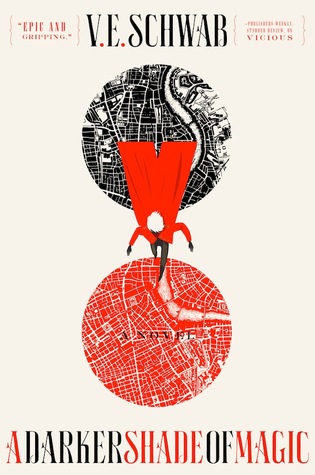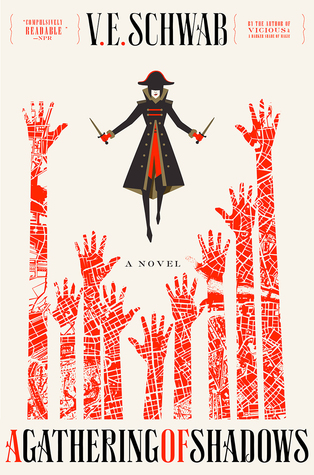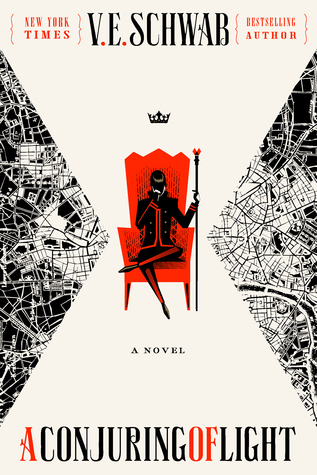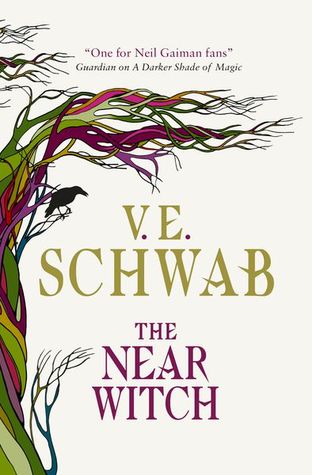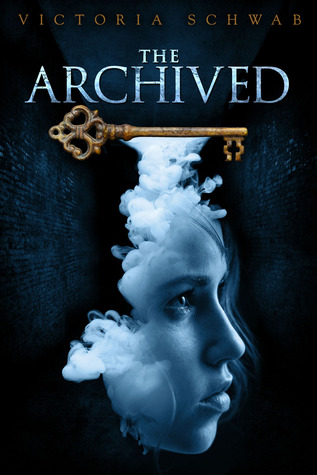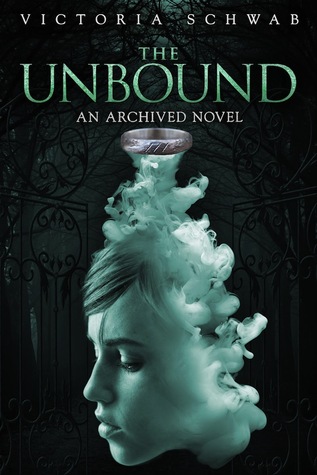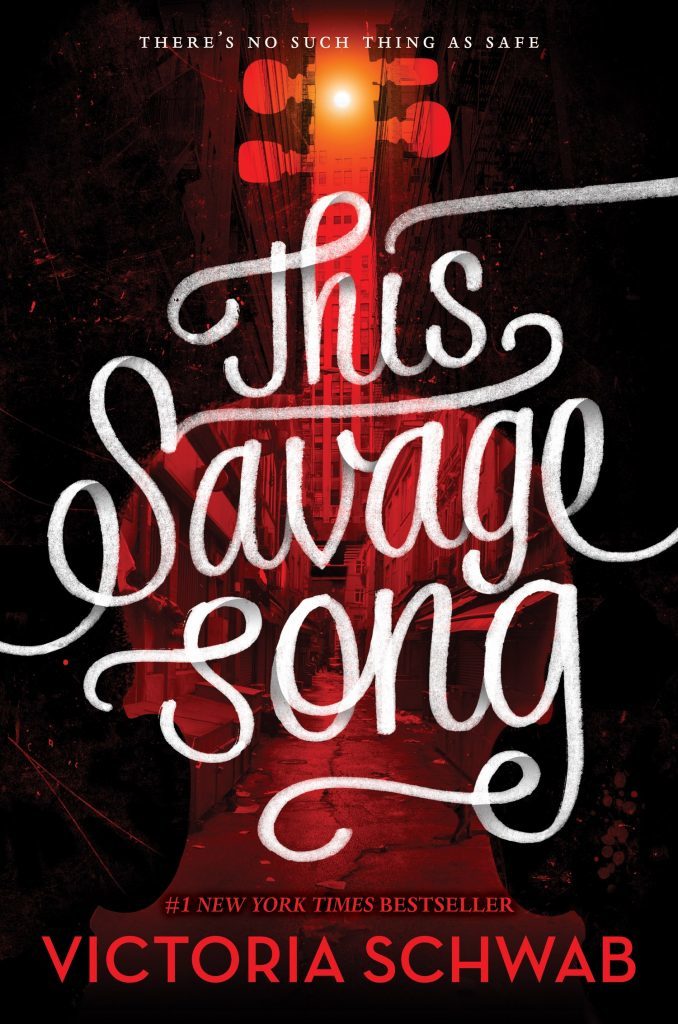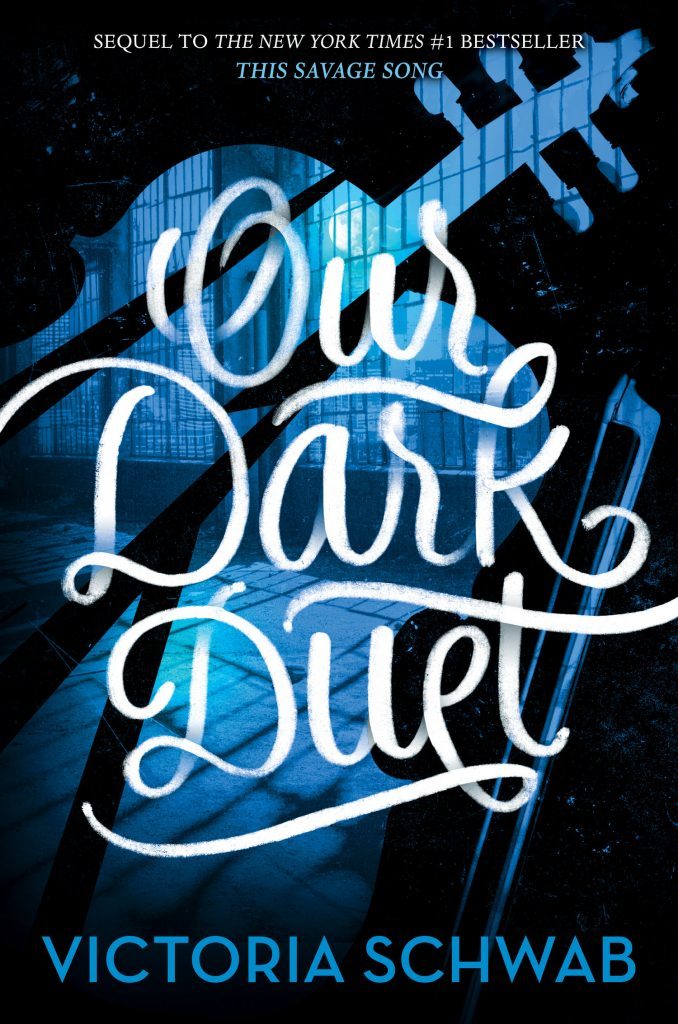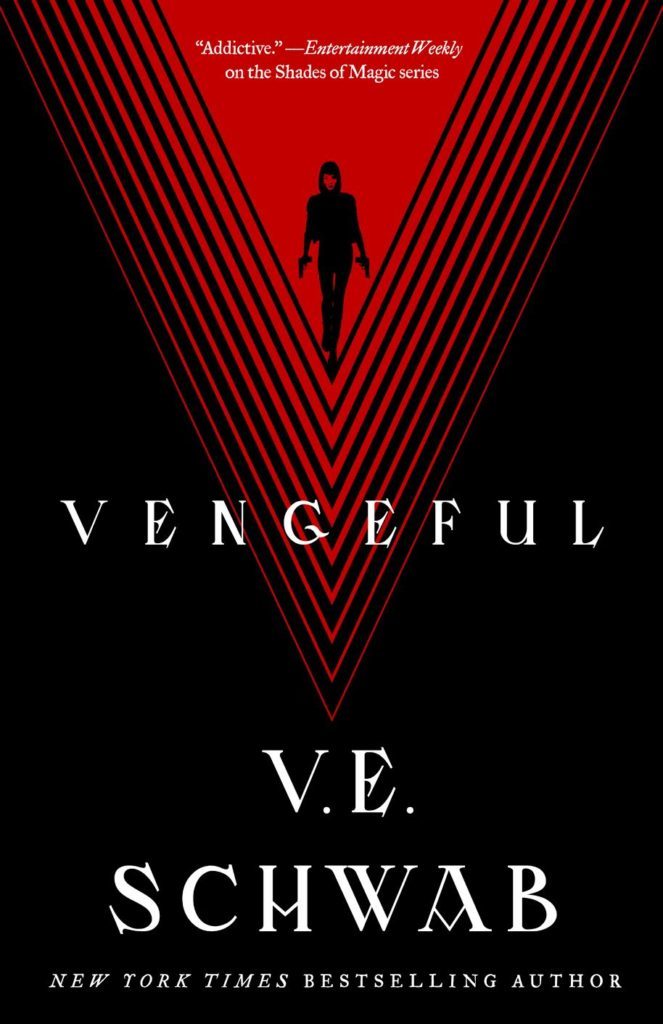Podcast: Play in new window | Download | Embed
Subscribe: Apple Podcasts | Spotify | Amazon Music | Email | TuneIn | RSS | More
A 45-minute conversation with Victoria/V.E. Schwab, the number-one New York Times bestselling author of more than a dozen books, including the acclaimed Shades of Magicseries, The Savage Song, Our Dark Duet, Vicious, Vengeful, The Near Witch, and City of Ghosts.
Website:
www.veschwab.com
Twitter:
@VESchwab
Instagram:
@VESchwab
Facebook:
VESchwab
Victoria/V.E. Schwab’s Amazon Page
The Introduction
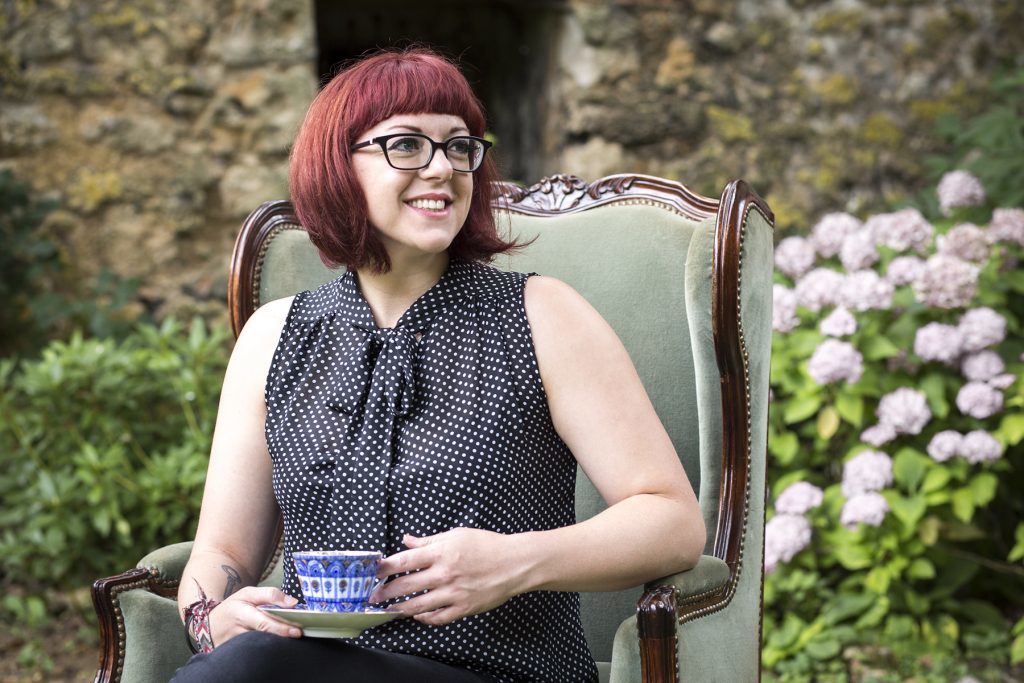
Victoria/V.E. Schwab is the number-one New York Times best-selling author of more than a dozen books, including the acclaimed Shades of Magicseries, The Savage Song, Our Dark Duet, Vicious, Vengeful, The Near Witch, and City of Ghosts. . Her work has received critical acclaim, been featured in the New York Times, Entertainment Weekly, the Washington Post, and more, has been translated into more than a dozen languages, and has been optioned for television and film. When she’s not haunting Paris streets or trudging up English hillsides, she’s usually tucked in the corner of a coffee shop, dreaming up monsters. She currently lives in Edinburgh, Scotland.
The (Lightly Edited) Transcript
Welcome, Victoria.
Thank you for having me.
Before we started recording this, I was just telling you that my daughter is a fan, and the way I came to your books, was my niece, she’s a lawyer, actually, in her 30s, had recommended the Shades of Magic to my daughter, who then read them and then recommended them to me. So, it’s what, you know, they say, “Word of mouth is the best possible publicity.”
I think, especially, weirdly word of mouth is more powerful these days when there’s so much buzz in so many different directions that I think there’s an authenticity that comes with word of mouth that really makes it very special. So, I’m incredibly flattered that that’s how you came to my work.
I always like to see if I can find any connections with the authors, your about the twenty-third I’ve interviewed here, and it’s a stretch with you, but you grew up in Nashville, and I went to university at Harding University, in Searcy, AR, which is in the neighborhood, church of Christ, you’ll be familiar with that if you grew up in Nashville.
Uh-huh.
And I spent a month with a family in Edinburgh, before you were born, so there you go, there’s a connection.
That’s a good connection, that’s like, what, five degrees of separation, not six.
Yeah, not bad at all. So how did you, first of all, become interested in reading—I presume you started as a reader of the fantastic—and then moved on from there to start writing it. Did that all start when you were a kid or what was your story?
I definitely wasn’t one of those children who grew up in a library. I think those are really beautiful narratives to hear. I was a jock. I was a really serious athlete all growing up. I wanted to go to the World Cup for soccer long before I ever thought about telling stories for a living. But I had a lot of health problems as well and so I wasn’t able to compete in sports at that level, but really I was a proficient reader, in that I was a very capable reader, but I had not had the experience that many children have growing up where they read something that makes them forget that they’re reading, that transportative experience. And the first time that ever really happened with me was with Harry Potter. And that can seem like a very trite answer these days, when almost everyone, it seems, has read those books, but you have to remember I’m 31, and so I read the first Harry Potterbook when it came out and I was 11 and Harry Potter was 11. So, I had the, based purely on the year in which I was born, the immense (privilege) of ageing with a protagonist in that way, and of becoming part of something that was such a phenomenon, such a worldwide phenomenon. And so, Harry Potterwould come to dominate and inform my entire teen years, my entire youth, in that way.
And that was a really special thing, because if I hadn’t had that series, I’m not sure how long it would have taken for me to find a series that transported me in that sense, that made me realize the power of narrative, because I grew up in love with poetry. And poetry is incredible, poetry, everything from William Blake to Shel Silverstein, is wonderful but it’s not transportative in the same way. It gives you an intense appreciation for language, but it doesn’t make you forget at any point that you’re reading.
And so, that’s really the power that Harry Potterhad for me, and being a true World-Domination-seeking Slytherin, my first reaction was, oh wow, this is cool, and my second reaction as an eleven, twelve-year-old was, “Wow, words are very powerful.” You know, the idea of words on a page being something which could psychologically impact you in that way, which could emotionally transport you, was to me a very intoxicating premise. And so it wasn’t very long before I started trying to write as well, though it would be, I would be 18 or 19 before I tried to write a book.
Did you write stuff before that, short stories or pieces?
I was particularly into fragments, yeah, really into poems, very dark, apocalyptic poems. All teenagers should write bad poetry. I was really into short stories. I was really into narrative non-fiction. Basically. I was really into anything that wasn’t novel-length because I was so convinced, to be honest, sixteen books I’m still convinced, that I don’t have the attention span for a novel. I was very afraid of the idea of having to keep a novel in my head while putting it down on paper. And so, I really…one of the only reasons that it even took me until college to try and write a novel was because I tried every other form first and then I realized that, as a sophomore in college I realized that the reason I hadn’t tried to write a novel was because I was afraid of failing. And I have a very antagonistic relationship to fear. The moment somebody points out that I’m afraid of something, or the moment I realize I’m afraid of something, I have a kind of combative reaction to that. So I realized I had a fear of heights and I jumped out of an airplane when I turned 18, and I realized I had a fear of change and I chopped off all my hair, and I realized I had a fear of being away from my comforts and so I traveled around Europe, like backpacking, and so, when I realized that I was afraid of failing to do this thing I immediately sat down and was determined to start and finish a novel.
Well, when you were writing fragments and bad teenage poetry—and I’ve edited magazines of teenaged writing, and I can assure that teenagers still write bad teenage poetry—were people encouraging you that, you know, you’ve got something here, maybe you should be writing it. Did you have encouragement along the way?
I did have some reinforcement in that, I struggled a lot as a teenager, and I felt very displaced at the time. I was so in the closet that I had no concept that I was gay, but I just felt continuously othered. I had been dropped into an all-girls Southern preparatory school at age thirteen in a completely different state, and I felt so out of place and so out of my element that writing became something that was just a tether. It was just an outlet for me. And then I had a couple of teachers who began to encourage me. And you know, God knows if they saw something or if they were just trying to say, “Here’s an anchor, here’s a life raft, but it really helped. And I, because I grew up with poetry I had a really, really good ear for cadence. And so, I actually…I mean, I was 15 or 16 when I started submitting poetry and winning contests with it. And by the time I graduated high school I was my high school’s Poet Laureate, and I had a sense from there on that I really wanted to do something with words, that words gave me a sense of power that I didn’t feel in the rest of my environment.
So, when you got to university, did you study writing, or did you study something else and write on the side?
When I first went to university I started out in astrophysics, and so needless to say I was a great departure. I would end up changing my major six times…and I stand by this. though. I wasn’t changing it because I wasn’t capable in any one discipline. I was changing it because the idea of choosing only one was terrifying to me. And that was really one of the first indicators I should have had that I wanted a creative profession because one of the beauties of writing fiction is that you get to become somebody else for a limited period of time. You get to become an astrophysicist, you get to become an explorer, you get to become an archaeologist, a scholar, a write,r you get to become all of these things and kind of dive into different lives. And that was something which really, really appealed to me. I do have a minor in creative writing.
I’m of very many minds when it comes to pursuing creative writing from an academic perspective instead of from a exploratory perspective. I still believe that the best education that I’ve gotten towards my own writing has been reading. I still believe that the vast majority of what I took away from those programs was, if anything, simply a…not a comfort, I don’t think I ever became comfortable with sharing my work, but the necessity of getting over that fear of critique, that was something that I took away from the programs. But the writing was something which happened in the background. It was something that I protected throughout university as a creative outlet.
It’s interesting, because several authors I’ve talked, some of whom did have formal creative writing classes, are also of two minds. I went into journalism myself, when I made my decision I wanted to work with words, because I was very, very practical and thought, “I can get a job,” as opposed to just trying to make a living just writing stories or something. So, how did the first novel come about? How did you break in, I guess is the question.
So, my…weirdly, because of my background in poetry, because I had an interesting or unusual cadence, I was able to get a literary agent with that first, first novel that I ever wrote, the one that I wrote when I was a sophomore in college. Now, that book never got published. It got very far up the acquisitions ladder at multiple houses and got rightfully rejected because it had no plot, because I didn’t actually know how to write a book. It was the first time I’d ever even tried. And what I was good at was writing very pretty sentences and what I had not yet figured out how to do was write a story. And so, I was so busy, that happened when I was a sophomore, I got an agent, from my sophomore year through my junior year that book was on submission to publishers and being summarily rejected from them. I hit my senior year, it was my second semester senior, and at that point I was doing an arts program. I had moved from astrophysics into set design into art history into English into…oh, God, one other one…and then—Japanese cultures and mythologies—and then into graphic design and marketing and design, and because I had come into the program so late, I was really behind. So I had this intense course load that I was having to take because most of the design majors had been in their program for like, four years, and I had been in it for a year and a half. So I had no time. It would have been very, very easy to put writing aside, and I would have followed that classic narrative arc of going off and doing something else for ten, fifteen, twenty years and then saying, “Oh I always wanted to write a book, I always wanted to be an author,” and find my way back to it. And I had this crystal-clear, almost out-of-body experience, on a February night as a second-semester senior, thinking, like, “This is where I make this choice. I either sit down right now and try again and try to write another book. or it is going to be something that I come back to after I have had another life,” and I didn’t want it to be that.
And so I began checking out of my art studio space for two hours every night from 9 p.m. to 11 p.m., walking off-campus to a coffee shop across the street, and sitting down and writing for two hours a night. It was time I really didn’t have, but I made this decision that I did not want to…I didn’t want the first book I had ever written to be a fluke and I didn’t want to give up on this path. And so, some nights I would write 500 words and some nights I would write 2,000 words, but essentially by the time I graduated that spring I had a draft of another novel and that novel was called The Near Witch, which is about a village where a stranger appears one night, and the following night all of the children begin to disappear one by one, and that would go on to be my debut novel
And there’s been several since then.
Yeah, several.
How many are you up to now, after about ten years?
Well, sixteen in about eight years, because it sold ten years ago, but I had several gaps. I had an eighteen-month gap between when it came out and when my next book came out. So for a while there, it was a two-year gap between when it sold and when it was published and…so, but yeah, it will come out to about seventeen books in ten years.
Now, you write both young adult and adult. Was the first book young adult or adult?
The first book was young adult, and I’ve actually written a few middle grade in ther,e as well, so for the age bracket below young adult. The Near Witchwas young adult. My first three books, The Near Witch, The Archived, and The Unbound, were all young adult, and then my fourth novel, Vicious, was my first adult novel.
When I started, my first unpublished novels were all basically young adult because that’s how old I was.
Yeah.
Is that one reason why you started in the young adult market? Because you were quite young when you wrote that first book.
Interestingly…and this is something that I had to do a lot of, like, soul-searching with afterwards, I have never written very comfortably into YA. Even my books that we were talking about earlier, The Savage Songand Our Dark Duet, they’re very, very much upper YA. And it has nothing to do with any of the arbitrary boundaries. I find that I tend to write very dark and very adult and less…I write almost no romance and I write very little coming-of-age, and so, it’s not that I ever fell cleanly in one category or another, it’s simply that my agent said, this will work in this category or this will work in this. I have always tried very hard to do what’s right for the story, and and try to worry about where it fits on a shelf later, because, you know, YA is a category of which more than half the readers are adults, and adult is a category of which more than half the readers teenagers. And so, I think it could be really unnecessarily divisive when we think creatively about these boundaries and about these thresholds. My primary interest is writing stories for a version of myself. So, when I write middle-grade novels, I am writing the book that I would have wanted to read at ten or eleven. Now I was a very morbid, strange ten- and eleven-year-old reading Jason Bourne and Stephen King. I was a very morbid and strange and outsider seventeen-year-old, which is who I wrote The Savage Songand Our Dark Duetand the Archivebooks for, and I’m a very morbid and strange thirty-one-year-old, which is who I wrote Vengefulfor earlier this year, and so, I think that’s really the only way that I fathom the boundaries between my books.
And I think you’ve pointed out, I’ve seen in interviews, that there are different categories in different countries.
Exactly. Yeah, my threshold for young adult in France is like twenty-three, and the threshold in, what is it, let’s see, in Brazil it’s quite high…or it’s quite low…oh, but in like the UK, which is where I live, you’ll see the young adult spaces on the shelves really skew younger. So, what we would consider a lower YA in the US, in terms of that kind of, like, fourteen and fifteen and much more contemporary, that’s the bulk of the young adult shelf in the UK. So, even books of mine which are published as YA in the US then are published as adult in the UK
I want to talk specifically about the Shades of Magic trilogy, and…so, I’m going to ask you the classic question. I won’t say where do you get your ideas, but I will say, what was the spark for that particular trilogy? And there’s more books coming in the series.
There are, there are. So, I’m a bit of a magpie writer. I have a slow process in which I collect many shiny bits and pieces of an idea before it coalesces into something, before I have a nester or whatever. I…so, it’s never like, one thing. I’m not a person who dreams entire stories. I’m not a person who sits down and has an entire character spill out. It’s usually a collection of fragments that simply…something comes along to become the codifying ingredient. And so, for Shades of Magic, A Darker Shade of Magic is the first book, and for those who don’t know, it’s about a magician with the ability to move between alternate versions of the world, officially as a messenger and unofficially as a smuggler, and he comes into possession of something he should not have. It all came about from several, several sources, gathered together slowly, but essentially, I wanted to write a love letter to Harry Potterbut not to any of the specifics of Harry Potter. I wanted to write a love letter to the nostalgia of wanting to visit a place, because at the time I was thinking about Shades of Magic, the market was inundated with dystopia and with narratives in which…the narratives themselves were incredibly compelling, but you as the reader would never want to go back and visit just to spend time in those worlds. Whereas, with Harry Potter, like, you wanted to go back to Hogwarts and you could kind of visually, mentally extrapolate what house you would be in and what you would study and do all these things, and it kind of gave you a world of nostalgia that existed outside of the actual plots of the characters. And I missed that, I missed having a world that I wanted to simply spend time in. So, I wanted to design that.
I also wanted to…I really like designing magical structures because I think that magical structures work best when they are at their most intuitive. And so, I wanted to design an intuitive magical structure. I wanted to do a nod to Avatar: The Last Airbender, which I was very much in love with at the time and still am, and I just…I had a visual in my head, along with all of those other elements. I had this still-frame picture, which I get sometimes, I get still-frame pictures in my head, and it was a man in a red coat walking through a wall and colliding with a girl dressed as a boy. And I had no story to go with it. And so, that was that was actually the first piece of the puzzle that I had. And then I was piecing through a snowfield garden, talking to a friend of mine, trying to figure out what I was going to write next, and I mentioned that picture, and I thought about how I write about a lot of different kinds of doors in my books, metaphorical and physical, but I had never written, at that point, alternate worlds, alternate realities. And when I mentioned that, I immediately thought back to that visual in my head and thought, “Oh, what if he wasn’t walking through a wall between rooms, like, what if he was walking through a wall between worlds?” And all of a sudden all of the other little shiny magpie pieces that I had just kind of started clicking, cascading into place.
One of the, I would almost call it a character in the book, is the city of London, and it’s three different iterations. Why London?
You know, it’s twofold. My cheeky answer is that London is the most overused setting in fantasy, and I wanted to play with that, because while all three to four of the Londoners in the series are called London, only one of them is actually London as we know it? And the rest is kind of a semantic anomaly. And so, you can go in assuming you know what the setting of this book is going to be and be proven very wrong because we spend very little time in our London, and the other answer is that the way that my magic systems are designed is, essentially, I wanted to build different bodies on the same bones. So I wanted to strip the geography down to its base elements and then build new cities on top of that. So, one step in our London is one step in Red London, is one step in Grey London. They have the exact same geographic footprint. And then I build the cities on top of them based on their relationships to magic. So, in Red London magic has thrived and so have the people and so the way that their environment works is a very magic-driven system, whereas in White London magic is being controlled and dominated and constrained by the people and it’s starving out all of the nutrients of their city, et cetera, et cetera. And so, I needed a geographic foundation that was easily recognizable, and London is one of those that is…it’s easy division. I mean, it has two banks and it has a river in the middle. And that’s essentially what I needed to do. I needed them all to be on the same footing pretty quickly.
Now once you had your actual idea, and all these elements that you had together, what did…and does…your planning process look like? Are you a detailed outliner or are you more of an on-the-fly kind of writer?
No, no. I plan. So, but I don’t plan everything. I think people hear the word outliner and they think like I’ve, you’ve stripped all of the magic from the process, like that you’ve somehow left no room for discovery and I disagree pretty strongly with that idea of an outliner. I have to know certain things when I go into a book. I have to know how it ends because I work backwards. So, I need to know how the story ends and where all of the characters are at the end so I can know who they should be and where they should be at the beginning. And so, I have a little bit of a rewind process when I’m writing.
Normally, I will then figure out five to ten of the most important kind of beats, the pins in the map, and then I will give myself enough space to explore and find my way between those pins. For A Darker Shade of Magic, it was a little unique because I was selling it to Tor, my US publisher, on a proposal, and so, essentially, because it was quite an ambitious project, I sat down and I wrote a five- to six-thousand word synopsis that was essentially a beat sheet for the story that I wanted to tell. And that’s more detailed than I had ever done before, but I knew that I…I am somebody who feels more comfortable with a map. I don’t hold myself to that map I don’t but it gives me a sense of where the world ends. It gives me a sense of, “Oh, if I go this way I’m gonna fall off a cliff and I don’t want to do that.” So, I use the map as giving me a safe environment to explore without getting derailed too far.
It’s interesting, again, talking to so many different authors, how different that process is for everyone. I think Peter V. Brett, who wrote the Demon Cycle books, writes like a 150-page outline, so he’s just very, very, very precise. Then there are people who say, “Well, I do a page, and then I go for it.”
I think it’s really interesting it’s so important to remember that there’s no right way to write. I think the what what works for you is whatever allows you to get out of your own way. So, for me, I get scared by not having a plan, and so that eliminates any of the joy that would come from discovery. Whereas there are other writers who—ninety percent of their joy comes from just wandering in the dark. I am somebody who gets a huge amount of joy from executing a strategy.
What does your actual writing process look like? Do you, you know, sit down at a desk for eight hours a day? Do you write in a coffee shop? Do you write in longhand? How do you do it?
A little bit of everything. I probably max out about two to three hours a day, because my job also requires me to…I mean, it’s an embarrassment of riches but I am really, really lucky to be at a point in my career where there are a lot of other demands on my job that are not actually word making. So, whether it’s, I’m about to set out on tour for almost three months straight, and so that obviously will change, and I will need to adapt and write in airports and write in hotel bars and in my room and things like that. I am somebody, though, who writes in twenty- to twenty-five-minute sprints because I have very short focus and it’s going many directions usually, and I try to do two to three hours of those twenty-minute sprints a day. And obviously, some days I exceed that and some days I don’t.
But I think it’s also really important to remember that there’s a difference between time spent creating and time spent typing. So, while I only sit down at my computer for two to three hours a day to write, I am creatively cogs turning all day, when I am at the gym, when I am walking my dog, when I am on a train or a plane, I am constantly turning over pieces of the story, so that when I sit down I can work. And sometimes I write by hand when I’m stuck. I don’t draft by hand, but I plot and I strategize and I create myself beat sheets for a scene by hand. I will do whatever I need to do to keep creative momentum. And some days when I’m travelling I don’t actually write any words but I spend time with the story so that I keep the creative door propped open in my head.
It sounds like you probably are a little different on every book in the way that it all comes together.
Absolutely. I will say that my process differs based on whether I’m writing a 45,000- word middle grade installment for my City of Ghostsseries or the adult novel that I’m working on right now, which is a book that has been in the process for almost a decade.
Once you have that draft, what does your revision process look like?
My revision process is really interestingly consistent considering I have three different editors at three different publishing houses. I think the more books I write the more I hate first drafts, because you become more and more aware of the things you’re doing wrong but you still have to do them wrong before you can do them right so that you have something to work with. I really do, it goes straight to my editor, first of all, like, I have a beta reader, she’s wonderful, and her job is essentially to keep me from quitting. And then I have very close relationships with all three of my editors. And so, I go…I turn in the first draft. Well, but also, I should sidebar or footnote and say that I do revise as I go. I don’t zero draft. So, when I say I turn in my first draft to my editor, I have been told, at least, that my quote-unquote first draft looks a lot more like perhaps a third draft because. By the time I’m turning it in I have outlined and strategized and plotted and kind of polished what I have as I’m going.
So, I turn that to my editors and then I usually do three to five rounds of revision, in kind of concentric circles. So, the first round of revision is very broad. It’s big picture. It’s plot and arc and pacing and worldbuilding. And then from there we move in kind of Russian-doll style to character and, again, pacing because by then I will have made some structural changes that need to be shored up and tightening of internal motivations. And of, you know, a lot of the emotional cogs. And then the third round, we start looking at the actual wording, tightening up any of the line edits, perhaps cutting one last scene in order to just to make sure that it’s functioning in its absolute strongest form. And from there it’s just last polish.
Are there any things that you find that you consistently end up doing getting in revision that for some reason you just didn’t notice in the first draft. We all have weaknesses that are caught by our editors.
Yeah, I do try. I do think that the more books I write the more I’m aware of those weaknesses. It doesn’t always stop me from making them, but I usually…I really have gotten better listening to the voice in my head that throws up a little warning light that something’s not working. And so even if I don’t know how to fix it I’ve gotten better at flagging it for my editor, as saying like, hey I know this moment isn’t achieving the right emotional piece or the right number of beats or whatever it is. That is probably the only thing that I feel like I’ve gained over the course of drafting. But the middle of the book and I always fight. The tension in the middle. I am quite confident in my last notes and in my first notes but there’s usually always something in the middle that I struggle with.
Using characters…and this question kind of goes back to the first draft…but how do you decide what characters you need and who are going to be your characters that carry the story forward. And do you do a lot of character planning?
No, I don’t, like do a sheet, I don’t, like, put them through their, like, psychological profiles and Meyers Briggs. My rule with characters is that they need to be fully realized enough that I could give them their own book, even if this is not their book, and they would be able to hold it up as the protagonist. And that is the rule that I hold for characters who are on-page for one scene. If you meet them in the course of my book, they should have enough depth, even if you never see it all, that they could have been the protagonist of a different story. And so, in the early stages of a book I don’t necessarily always know which characters are going to take up more space as the story goes on. A classic example of that is, there’s a character in the Shades of Magicseries who becomes kind of our, like, doorway to grey London, to our London, named Ned, Ned Tuttle, and Ned Tuttle is a human character with no magical powers who was only supposed to show up in one page of the first book. And…but because I try very hard to give characters enough potential, enough depth, he became somebody that my editor and my readers wanted to see more of as the books went on, and so he started to show up more and more.
And so that is the luxury of treating each of your characters as though they are a main character, simply not of this book. I make sure that for every one of my characters I can answer the questions, “What are they afraid of, what do they want, and what are they willing to do to get it?” Because I think understanding those core psychological tenants, those core kind of ethical and motivational tenants, are some of the most important for grasping a character, even if they aren’t going to be the central one of the narrative.
You had mentioned that briefly you had studied set design. Have you done any other…like, been an actress?
No. God, no.
The only reason I ask is because I am an actor.
Yeah.
The process that you talked about with characters, sounds very much like what actors do to try to bring characters to life, even if you have a walk on, you try to make them in some way memorable.
Well, that doesn’t surprise me. I mean, I do think that authors…I think one of the… I don’t want to call it a failing One of the frustrations I’ve had with some of the novels that I’ve read lately is, I think, in the interests of plot and pacing, sometimes authors are forsaking character a little bit and they have to remember that, if we don’t care about the people that the plot is happening to, we will not care about the plot when it is over. Like, you have to, if you think about it, if you’re writing a series, we come to the first book in a series for the plot because we don’t know the characters yet. Right? So, we have to be drawn to the first book in a series solely based on the concept and the plot. But we don’t come back to a series for the plot. We come back to the subsequent books for the characters.
Now this is going to be a little shorter than some of these, because I know that you’re very, very busy, so I’m going to come to the final couple of questions…
I have a nine-month-old puppy who keeps coming into the kitchen and looking at me like, “Hey!”
So, a couple of big philosophical questions here. You’ve talked a little bit about why you started, but why do you think anybody writes. Why do we tell stories, and particularly stories of the fantastic?
Oh, God, that’s such a big question. I’m not sure I have an answer to it. I mean, I can’t…this is the thing, I can’t speak to it a general…writing is such a personal process. I think many of us probably have slightly different motivations. I have friends who write because they’re good at it and they make money and I have friends who write because it is an exorcism of internal chaos and I probably fall somewhere in the middle. Like, I love my job. I see it as a job. But even if I weren’t being published, I would write, because it is the only way to make straight lines out of all of the tangles in my head.
Another way to ask is, why do you think readers read stories and are interested in what we right. And also, because this is the others the other question I would ask is, What do you hope your books give to readers. What do you hope they take it away from them?
I think sometimes it’s escapism and sometimes it’s mirror. Like, sometimes we want to be somebody else and sometimes we want to see ourselves. And so, I think that can depend, really, on the story. I think a goal for me when I write is to give them both, is just, show somebody who isn’t usually centered in the narrative, to give them space in the middle, to let them see themselves in that way, but also sometimes to let them escape their reality. I mean, I write fantasy because…and this is the dedication at the beginning A Darker Shade of Magic…but I grew up wanting the world to be stranger than it was. I grew up looking for cracks in stone walls that might be doorways and I may I still believe in magic and I still believe that there’s so much more to this world than we understand and it’s that potential for magic that makes me want my readers to doubt their reality. That’s my goal. I want you to pick up one of my books and ask yourself by the end, like, I mean, “Is that possible?”, because, for instance, I have a series called The Villainsseries. The first book is Viciousand the second book is Vengeful. And these books are built on a sci-fi concept, on the concept that superpowers can evolve from a specific kind of near-death experience, right? And, like, it’s an extrapolation of science, of the kind of the phenomenon that happen s when adrenal responses overload under immense stress. But I tried to write it with an eye toward utmost realism. And it’s funny to say I tried to write a supervillain novel with an eye towards realism, but every few months I will get an email from somebody, usually a guy, a like, grown man, who will say, “Hey, like, I read these books and, like, I just want you to, like, confirm this isn’t real, is it? Like, this phenomenon isn’t real.” And that entire interaction right there is my goal. That entire interaction, whether I’m writing fantasy or science fiction. I want readers to doubt, because when we’re when we’re young we doubt. When we’re young we believe so easily, and that’s something that we seem so loathe to hold onto or so unable to hold on to. And that’s what I love about fantasy, both as a reader and as a writer, is that it reintroduces doubt and possibility.
You talked about the crack in reality. I think it’s a great metaphor. That was Doctor Whowhen the crack opens up in the wall in Amy Pond’s room.
Absolutely.
And we’re thinking, “That could happen. That could totally happen.”
We read to believe something can happen, if we are not sure about it, in our own world, or if we don’t think it’s possible in our own world, whether that’s a person, whether that’s magic, whether that’s simply a better, stronger, stranger, darker, freer version of ourselves
So, you are going on book tour. Perhaps we should at least mention that book.
What’s really interesting is I’m going on book tour in part for The Near Witch, which is the book that I mentioned at the very beginning, the very first novel. It went out of print…I mean, this is the thing. Writing is an art and publishing is a business. And when The Near Witchcame out in 2011 it was strange and quiet at a time when the things which were successful were very loud. And I had no readership yet, it was my debut novel, and it wasn’t particularly given the time that it needed to find its strange little morbid audience. And I have the immense fortune now, almost a decade later, that my readership has grown and is full of readers who like my strange, morbid, peculiar stories. And so, The Near Witchis finally being rereleased after five, six years not on shelves, and so I’m going on tour for that and for the graphic-novel release of my comic book series, which is set in the Shades of Magicworld, called The Steel Prince.
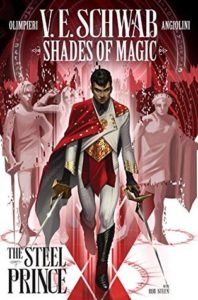
It’s interesting, because The Near Witch is going to seem like a brand-new book, then, to most people.
Some people have been, like, “Why did somebody put on the blurb that this is her debut novel, like, this is obviously her sixteenth or seventeenth book,” and I’m like, “Well, this is the weird paradox of it, isn’t it?” Like, it is a brand-new book and it has a novella with it that was never published. And it’s gonna be really interesting to see what the readers’ reception is to this book, for those who assume it is a new book
Now, for those who want to follow along and try and find out where you are and what you do doing, and all that stuff, how do they find you online?
Oh, I live inside the Internet, so it’s very, very simple. Probably the best places to find me are on Twitter and Instagram. On Instagram I post my tour schedules when they’re finalized, so it’s a good way to figure out where I’m going to be, a little bit more static than Twitter. But I’m @VESchwab on both of those platforms
When this airs, you’ll actually be well into the tour, this will probably be on in April sometime, I think. So, have a great tour.
Thank you.
Thank you so much for being on The Worldshapers. It’s been a great pleasure talking to you.
Thank you so much for having me.

